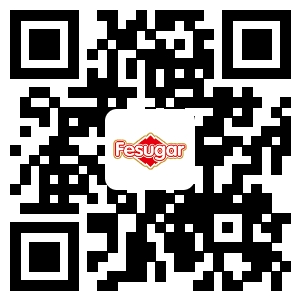Stricter regulations are coming to the candy industry, and packaging labels will continue to improve.
2024-11-27
At the recent annual meeting of the European Confectionery and Biscuit Association (CAOBISCO) held in Brussels, representatives from candy manufacturers such as Mars, Ferrero, Mondelez, and Nestlé, along with representatives from the European Commission, discussed the role that the confectionery industry should play in health issues.
At the recent annual meeting of the European Confectionery and Biscuit Association (CAOBISCO) held in Brussels, representatives from candy manufacturers such as Mars, Ferrero, Mondelez, Nestle, and the European Commission discussed the role the candy industry should play in health issues. The European Consumer Organization (BEUC) stated that consumers want candy companies to limit the market for children.
Starting with obesity prevention
According to data from the World Health Organization, one-third of children in Europe are overweight or obese, and their intake of sugar, salt, and saturated fatty acids is far above dietary recommendations. This issue cannot be ignored in other regions and must be addressed.
Imposing constraints on advertising
According to data from the American Psychological Association, children are influenced by television advertisements to choose unhealthy foods, which is a very critical factor contributing to obesity.
Data shows that children who watch a lot of television consume more total calories, fast food, and sugary drinks.
Therefore, BEUC calls on candy and beverage manufacturers to reduce the addition of sugar, salt, and saturated fatty acids while increasing the intake of fruits, vegetables, nuts, and healthy proteins. For candy manufacturers, the first step is to reduce the market.
In 2010, CAOBISCO suggested that member companies join the EU declaration, which calls for a ban on advertising to children under 12. Mars, Ferrero, Mondelez, and Nestle all announced their compliance with this declaration.
Joining the EU declaration
The EU declaration has certain limitations. Today's children are still exposed to a large amount of information that encourages them to choose unhealthy foods, such as snacks with cartoon characters on the packaging.
Advertising from member companies of the EU declaration accounts for 80% of the EU food and beverage industry, and BEUC food policy officer Pauline Castres stated that candy manufacturers should reflect on health issues, and government departments should also play a role in setting goals.
Currently, food companies voluntarily join the EU declaration, and each food company has made improvements in policies regarding the children's market.
Stricter regulations are coming
The UK Advertising Standards Authority (CAP) is currently launching a policy that requires a complete ban on advertising for high-fat, high-salt, and high-sugar foods (HFSS), which is an extension of current requirements for non-broadcast media, such as online platforms.
Although many member companies have restructured their products, adjusting packaging sizes is still a measure taken by many large companies.
Controlling packaging portions
Castres strongly supports CAOBISCO's request to reduce the size of candy product packaging, but also points out that the prices of small packaged foods should be appropriately lowered to make them affordable for consumers. She said, "Small-sized packaging can be more than twice as expensive as other sizes, which is unaffordable for low-income families."
In addition, Castres believes that the portion size indicated on the label should accurately reflect how much consumers actually eat.
Sugar content will be labeled
BEUC supports the EU's legislation on "Food Information to Consumers (FIC)" which means that, starting from December 13, 2016, food companies will be obligated to provide nutritional information about their products.
Such labels will not pose a major problem for candy companies; consumers are not shocked to find sugar in chocolate. In contrast, it may have a greater impact on other categories, such as when consumers see a lot of sugar in what they believe to be a very healthy mixed breakfast cereal or in a healthy granola bar, they are usually surprised.
In the United States, Mars chocolate supports labeling for added sugar content, and the National Confectioners Association also states that the nutritional labels need further changes.
BEUC supports the introduction of a traffic light labeling system in the EU. Castres stated that the traffic light labeling will not only target obesity issues but will also help consumers identify high levels of sugar and saturated fatty acids in products that claim to be very healthy.
Related News



